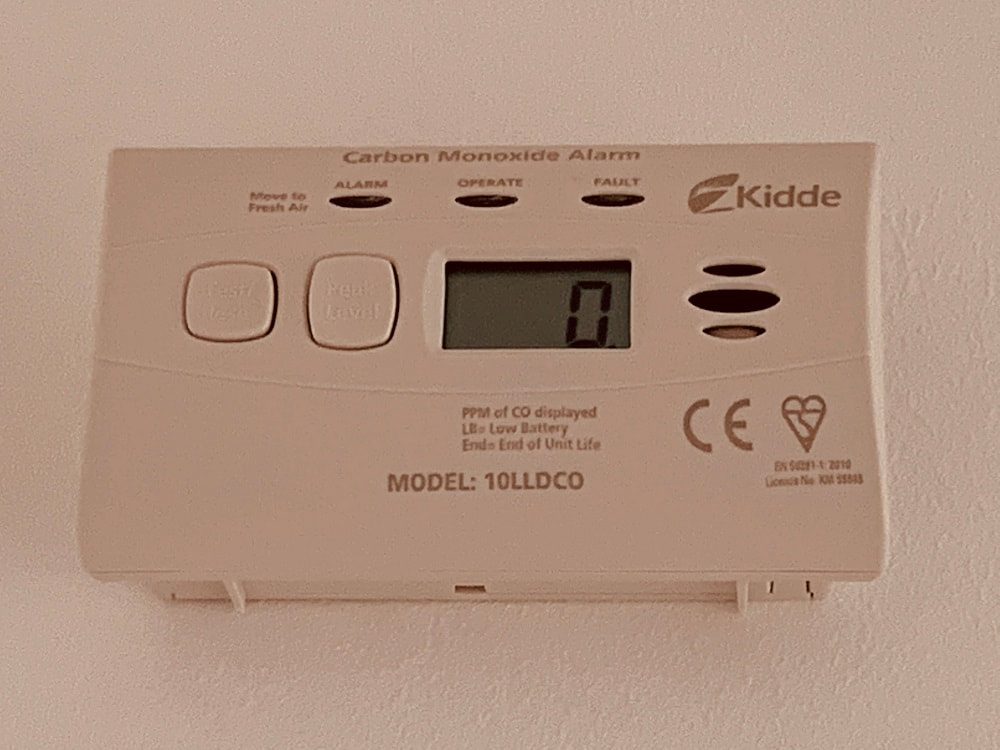|
Symptoms of carbon monoxide poisoning are rarely obvious, and usually quite vague. Often, they mimic the symptoms of viral infections like colds or flu, or even just tiredness. A person may feel dizzy and drowsy, have headaches, feel nauseous or be sick, have chest pains and visual problems and pains in the stomach or be very breathless. If more than one person within the household is suffering similar symptoms, this is an additional clue, as is the letting up of symptoms when extended periods of time are spent away from the house, such as during a holiday. Seasonal symptoms are a further clue; carbon monoxide poisoning is more prevalent in the winter when the boiler is most in use. A regular central heating service is one of the best ways to safeguard yourself, family and pets from this kind of harm. Always use a fully-qualified Gas Safe Registered (previously Corgi) professional for your central heating service. A good gas professional will check all of your appliances and heating system for any leaks or corrosion, and will give the vital parts a good clean to keep them working efficiently. As well as a central heating service, purchasing a carbon monoxide detector is a good way to safeguard against poisoning. A small audio device, a detector of this sort works in a similar way to a smoke detector but isn't as loud or urgent, but will still alert you as soon as there is a problem, allowing you to resolve it quickly. As a homeowner, it's vital that you have a regular central heating service once a year if possible. Not only will a yearly central heating service help keep your boiler running efficiently thus reducing your bills, it could also save your life. Faulty gas appliances in the home can result in Carbon monoxide leakage; a gas that is poisonous to humans. The main reason carbon monoxide is so dangerous is that we are unable to detect it. It has no smell or taste and is colourless. Carbon monoxide is produced when carbon-based fuels, such as oil, gas, coal and wood, burn incompletely, and when it enters the body it stops the blood being able to transport oxygen to the cells and organs. Affects on the body can be devastating, and in some cases carbon monoxide poisoning can be fatal. In the UK, carbon monoxide poisoning in the home accounts for 50 recorded deaths per year. Prolonged exposure to this gas over many months can cause very serious harm to health; even brain damage and paralysis. Symptoms of carbon monoxide poisoning are rarely obvious, and usually quite vague. Often, they mimic the symptoms of viral infections like colds or flu, or even just tiredness. A person may feel dizzy and drowsy, have headaches, feel nauseous or be sick, have chest pains and visual problems and pains in the stomach or be very breathless. If more than one person within the household is suffering similar symptoms, this is an additional clue, as is the letting up of symptoms when extended periods of time are spent away from the house, such as during a holiday. Seasonal symptoms are a further clue; carbon monoxide poisoning is more prevalent in the winter when the boiler is most in use. A regular central heating service is one of the best ways to safeguard yourself, family and pets from this kind of harm. Always use a fully-qualified Gas Safe Registered (previously Corgi) professional for your central heating service. A good gas professional will check all of your appliances and heating system for any leaks or corrosion, and will give the vital parts a good clean to keep them working efficiently. As well as a central heating service, purchasing a carbon monoxide detector is a good way to safeguard against poisoning. A small audio device, a detector of this sort works in a similar way to a smoke detector but isn't as loud or urgent, but will still alert you as soon as there is a problem, allowing you to resolve it quickly. If you have any concerns about your central heating system, contact Arco today for an appointment. Call Martin on 07977 229 134 or Craig on 07970 296 171.
0 Comments
Your comment will be posted after it is approved.
Leave a Reply. |
Categories
All
Archives
December 2020
|
|
Copyright 2024. All rights reserved. Data Policy
Essex web design by Perfect Layout Digital Marketing |


